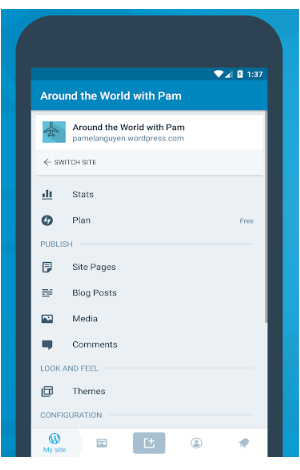Whether you want to launch a blog to grow a pre-existing business or just to get your words out into the digital space, the process of starting a blog almost always will come down to finding the best blogging platform for you.
There are many, many different pathways to pressure blogging, and each path comes with its own set of features, positives, and negatives. Your budget, approach the blogging, and long-term goals are vital to keep in mind when vetting out different companies and trying to uncover which you would like to do business with.
We’ve assembled six tips you can utilize to narrow down your search as you try to uncover the best blogging platform for you. Remember that starting your blog on the right platform and growing with it will always be easier than shifting to a new platform down the road.
The best platforms for blogging can make blogging not only easy and simple, but fun as well.
1. Your best blogging platform “wants what you want”
Different platforms cater to different expectations and user demands. How focused you want your website to be on blogging is an important aspect to keep in mind when searching for a platform.
Many people want to launch websites that use a blog as a method to generate traffic. Perhaps the purpose of your blog is to get people reading posts that are related to the products sold by your business. In which case, a blog is an excellent strategy to increase outreach and SEO.
 For others, their blog is the primary focus of their website. Aside from smaller pages linking to other sources, these people want their posts to be front and center; not hidden away in a third or fourth page.
For others, their blog is the primary focus of their website. Aside from smaller pages linking to other sources, these people want their posts to be front and center; not hidden away in a third or fourth page.
In either case, choose the best blogging platform that works for your scenario. Some platforms focus exclusively on blogging, while others have blogging as one of many features to add to a new website. The right platform for you is the platform that mirrors your expectations for a new blog.
2. Consider customization
Designing a blog can be as difficult or as simple as you want it to be. The website can be coded by yourself or a web developer, or simply derived from one of many templates on the Internet.
Generally speaking, the more customization you want, the more work you’ll need to put it to make sure your website is just right.
For example, choosing your own web host as opposed to using a web host owned by a website-building service is going to take more work. Alternatively, going for a one-stop-shop for all of your blogging needs will limit your ability to assume control over the end product.
Consider customization, and how badly you need it. Look through several templates of website builders like WordPress, Wix, or Squarespace. Can you see your blog looking like this? What would you keep? What would you change?
These questions (and their answers) will guide you towards a platform that’s as detailed and as simple to use as you need it to be.
3. Look through plans
No matter how you spin it, setting up a blog will cost some money.
Between a new domain purchase, website hosting fees, and possible fees to set up the website, you’re looking at a considerable early investment and additional monthly bills from here on out. Because of this, you’ll need to look into what is and is not offered by your blogging platform.
Some of the best blogging platforms host blogs for you and have different levels of bandwidth available at each level. For others, the template used will cost you a certain amount of money.
Flip through these plans and consider the positives and negatives of working with each company.
4. Check third-party capability
While a good platform will hold many features that will help you customize and streamline your site, the ability for a blogging platform to utilize third-party applications is vital.
Third-party applications can take your blog to the next level, adding on additional features and providing real value to your readership. Be sure to check in with your prospective platform to see if they offer the ability to go third-party.
5. Check for room to grow
As your blog grows, so will your needs. More bandwidth will be needed to accommodate the additional readership, and you may want to add on E-commerce or other features to your website to make it a one-stop shop for your brand.
Simple and efficient blogging platforms may be great for the first-time blogger, but can they grow to match your business? If you’re going into blogging for the long haul, seek out a blogging platform that has additional features (and reasonable prices) for your needs over time.
Nothing is worse than having to migrate your entire site to another platform due to growing pains.
6. Consider your hosting needs
Finally, all of this talk of setting up a website calls into question the need to own your own site in the first place.
Many online blogging platforms aren’t website builders, but rather publishing sites that will host your work and even share it with millions of other people. Medium is a good example of a site that can allow you to blog without ever dropping money on web hosting or domain purchasing fees.
Unfortunately, a publishing platform isn’t for everyone. If you’re hoping to blog to drive traffic to another location to possibly monetize your blog, these aren’t for you. In many ways, your blog will be driving forward your brand as well as the brand of the company you are blogging with.
As with our other tips, it will all come down to your desires for your blog. Consider your future, and where you would like your blog to end up. Set up shop with a publishing platform or purchase a section of the Internet that you hope to grow.
With hard work and determination, your best blogging platform will not only aid you in success. It’ll enable it.





